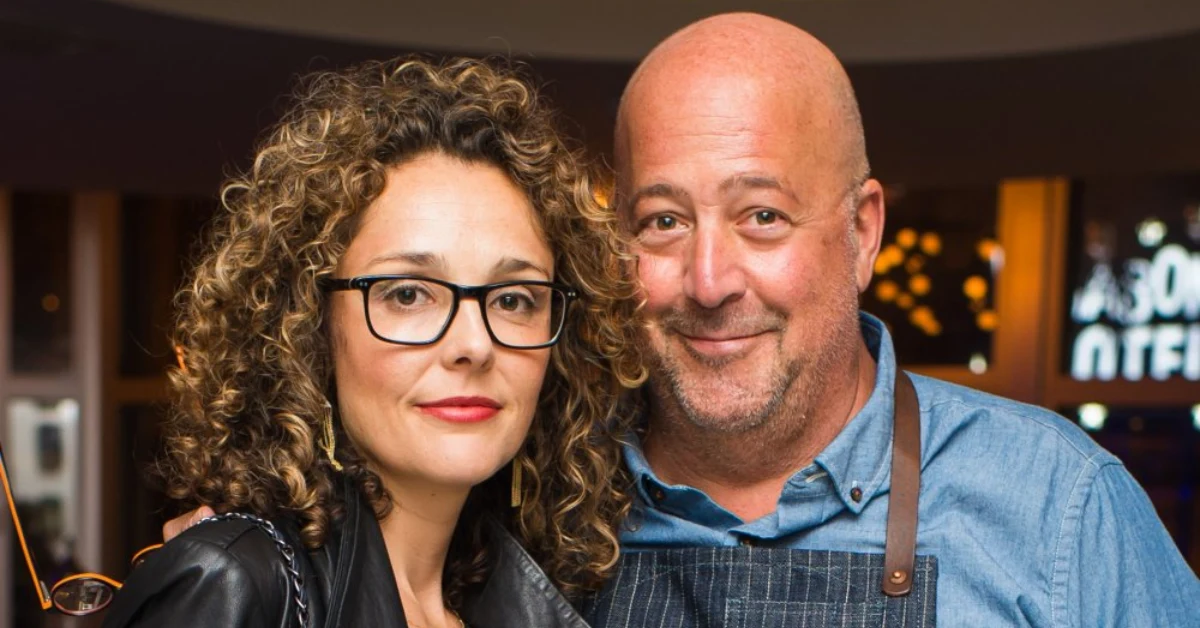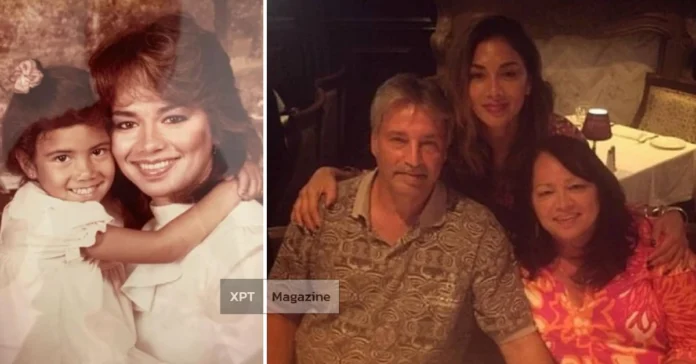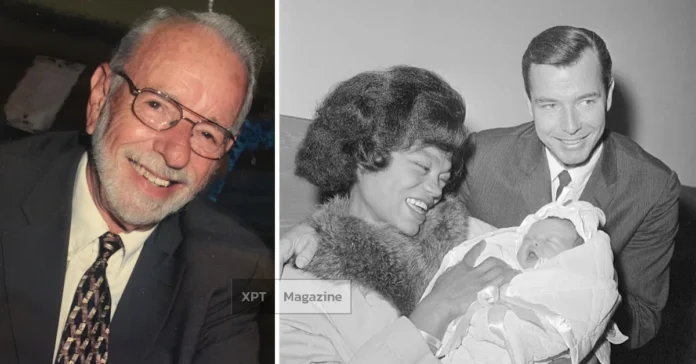Picture this: a Minnesota chef stands in a bustling market in Cambodia, watching locals prepare deep-fried tarantulas. Instead of grimacing or backing away, Andrew Zimmern leans in closer, asks questions, and eventually takes a bite. This moment captures the essence of who he is—a culinary traveler who sees food not as weird or normal, but as a gateway to understanding people and their cultures.
Over two decades, Zimmern has become America’s most recognized food explorer, hosting hit shows like Bizarre Foods and The Zimmern List. He’s won multiple James Beard Awards and turned curiosity about unfamiliar dishes into a career that spans television, books, and advocacy work. But his journey to becoming a beloved TV personality wasn’t straightforward—it’s a story shaped by personal struggles, professional reinvention, and an unwavering belief that food connects us all.
Who is Andrew Zimmern?
Andrew Zimmern was born in 1961 in New York City and grew up in a family where food mattered. He’s a chef, television host, author, and producer who has spent his career exploring how different cultures use food to tell their stories. Unlike other celebrity chefs who focus on restaurants or cooking techniques, Zimmern built his reputation by traveling to remote places and eating things most Americans would never consider putting on their plates.
His approach goes beyond shock value. When he tries fermented shark in Iceland or century eggs in China, he’s not doing it for dramatic effect. He wants to understand why these foods exist, how they fit into local traditions, and what they reveal about the people who eat them. This curiosity has made him one of the most trusted voices in food television.
Early Years and How Food Found Him
Food wasn’t just nourishment in the Zimmern household—it was education. His father, a food critic and wine importer, exposed him to international cuisines early. Family dinners included discussions about flavor profiles, cooking methods, and the cultural significance of different dishes. These conversations planted seeds that would later bloom into his career philosophy.
After high school, Zimmern attended Vassar College but left to pursue culinary training. He worked in restaurant kitchens across New York, learning classical French techniques and understanding how professional kitchens operate. These early kitchen jobs taught him discipline, but they also showed him how food could be both art and craft. He wasn’t content just making pretty plates—he wanted to understand the stories behind every ingredient.
From Chef to On-Screen Food Explorer
Zimmern’s transition from restaurant chef to television personality wasn’t planned. In the late 1990s, he was working as an executive chef in Minneapolis when local media outlets started asking him to comment on food trends. His articulate explanations and genuine enthusiasm caught the attention of television producers.
The breakthrough came in 2006 when the Travel Channel launched Bizarre Foods with Andrew Zimmern. The concept seemed simple: send a knowledgeable chef to different countries and have him try unusual local foods. But Zimmern brought something special to the format. Instead of treating these foods as curiosities or challenges, he approached them with respect and genuine interest in their cultural context.
The show’s success surprised everyone, including Zimmern. Viewers connected with his authentic reactions and his ability to find common ground between unfamiliar foods and familiar human experiences. Within a few seasons, Bizarre Foods became one of the Travel Channel’s most popular programs.
Signature Shows and What They Meant
Bizarre Foods ran for 13 seasons and took Zimmern to over 100 countries. Each episode followed a similar structure: arrive in a new place, meet local people, learn about their food traditions, and participate in meals that revealed something deeper about the culture. The show worked because Zimmern never positioned himself as superior to the people he met. He was genuinely curious, often humbled by local knowledge, and willing to admit when something didn’t taste good to him.
The Zimmern List, which premiered in 2017, shifted focus to American food culture. Instead of seeking out the most unusual dishes, Zimmern explored iconic American foods and the stories behind them. The show celebrated regional specialties and the people who perfected them, from Texas barbecue to Maine lobster rolls.
His most recent project, What’s Eating America, tackles food through a social justice lens. The show examines how food systems reflect broader American inequalities and highlights people working to create more equitable access to good food. This evolution shows how Zimmern’s perspective has matured—he’s moved from simply documenting food to advocating for positive change in how we think about eating.
A Personal Struggle That Shaped His Voice
Behind Zimmern’s television success lies a story of personal transformation. In the 1980s and early 1990s, he struggled with alcohol and drug addiction that nearly destroyed his career and his life. He lived on the streets of New York for several months, a period he describes as his lowest point.
Getting sober in 1992 changed everything about how Zimmern approached food and life. Recovery taught him empathy, patience, and the importance of authentic connections with other people. These qualities became central to his television persona. When he sits with families in rural villages, sharing meals and stories, his genuine interest comes from understanding how food can provide comfort and community during difficult times.
His sobriety journey also led him to advocacy work. He speaks openly about addiction in the restaurant industry and supports programs that help food service workers access treatment and recovery resources. This personal mission adds depth to his public work and explains why viewers trust him—he’s not just performing for cameras.
How He Talks About Food—Curiosity Over Shock
Watch any episode of Zimmern’s shows and you’ll notice he rarely describes foods as “weird” or “gross.” Instead, he talks about technique, history, and cultural significance. When he encounters foods that challenge his palate, he acknowledges his reaction while respecting the traditions behind them.
This approach sets him apart from other food television personalities who might focus on dramatic reactions or cultural superiority. Zimmern understands that every cuisine develops for specific reasons—climate, available ingredients, preservation needs, and religious practices. His job isn’t to judge these choices but to help viewers understand them.
He’s particularly skilled at finding connections between unfamiliar foods and familiar experiences. When trying fermented fish sauce in Southeast Asia, he might compare it to aged cheese or explain how both preservation methods developed to extend protein availability. These comparisons help viewers see past surface differences to underlying similarities.
Beyond TV: Books, Recipes, and Projects
Zimmern has authored several cookbooks that reflect his travel experiences and culinary philosophy. The Bizarre Truth combines memoir with recipes, sharing personal stories alongside dishes that influenced his perspective. His other books focus on specific techniques or regional cuisines, always emphasizing the cultural context behind the cooking methods.
His website and social media presence extend his television work, featuring recipes adapted for American kitchens and ongoing discussions about food policy issues. He’s particularly active on platforms where he can engage directly with viewers, answering questions about his travels and sharing recommendations for people planning their culinary adventures.
Recent projects include consulting work for restaurants and food companies, helping them develop products or concepts that reflect authentic cultural traditions rather than appropriating them. He’s also involved in food policy discussions, particularly around issues of food access and sustainability.
Why People Still Follow Him
After nearly two decades on television, Zimmern maintains a loyal audience because he’s remained genuine. He doesn’t pretend to know everything about every cuisine, and he’s willing to learn from people regardless of their formal culinary training. This humility resonates with viewers who appreciate authenticity over performance.
His advocacy work also attracts people who care about food justice issues. By using his platform to highlight problems in food systems and celebrate people working for change, he’s shown that food television can be more than entertainment—it can be a tool for education and social progress.

Viewers also connect with his recovery story. His openness about addiction and the role food played in his healing process provides hope for people facing similar struggles. He proves that personal transformation is possible and that our lowest points don’t define our potential.
What to Watch for Next
Zimmern continues exploring food’s role in social justice through various media projects and public speaking engagements. He’s particularly focused on food access issues and supporting local food systems that serve communities equitably. His recent work with MSNBC and other outlets suggests he’ll continue using food as a lens for examining broader social issues.
As he moves into his sixties, Zimmern seems most interested in projects that create positive change rather than simply documenting interesting foods. His evolution from curiosity-driven explorer to thoughtful advocate reflects a career spent learning that food is never just about eating—it’s about how we care for each other and build communities that nourish everyone.




